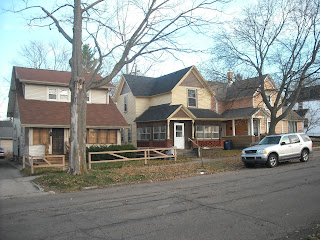“I suspect that were kinship our goal—we would no longer be
promoting justice—we would be celebrating it.”
--Gregory Boyle, Tattoos on the
Heart
Several weeks later, the same thing happened as I walked to
First AME on a Sunday morning. He
kept telling me about his sister and how sad he was. He wasn’t thinking straight. But he stumbled along with me to church and sat down next to me. He smelled of alcohol, and enjoyed the service so much that he stood up at the wrong times and shouted out at the wrong times. None of us really knew what to do with him. Afterwards, he kept telling me, “I want to come back. I really liked that.”
kept telling me about his sister and how sad he was. He wasn’t thinking straight. But he stumbled along with me to church and sat down next to me. He smelled of alcohol, and enjoyed the service so much that he stood up at the wrong times and shouted out at the wrong times. None of us really knew what to do with him. Afterwards, he kept telling me, “I want to come back. I really liked that.”
Another Sunday morning earlier this year, Rob stumbled into
St. Philips late and sat down near the front, weeping and making a scene. He
was still mourning the death of his sister. Someone asked me if I knew him, and
I said yes. A lady led him to sit down next to me. Before the service was over,
he left. If I remember right, he walked out during the Prayers of the People.
They can be a little long.
In October, Rob was killed by a car while crossing 28th
Street. His family and friends have no idea why he was down by 28th
Street as he almost never spent time there. Several short MLivearticles documented the event, but it was important to me to hear a bit
more of his story and to hear from his family and friends.
His nephew, Steve, recently reopened his restaurant, Chicago Hoodspot, just
down the street from First CRC on the corner of Franklin and Union. Steve shared
a bit of Rob’s life story.
Rob had lived in Grand Rapids for 18 years, but he was from
Chicago. He told just about everyone he met that he was from Chicago.
He grew up on the South Side, working in a grocery store. He
spent a lot of time with his family and especially his nephews and nieces.
Steve has good memories of Rob taking 10-12 of them on the bus to see Bruce Lee
movies in the theater. They would sit on his lap on the bus and laugh a lot.
Rob taught Steve how to iron clothes so that “the creases
could cut butter,” paying him 50 cents to a dollar for every job.
After working in a grocery store for many years, Rob found a
full-time job working in a factory in Grand Rapids and moved away. He got
married and started a family. Three years later, he encouraged Steve to join
him in what he saw as a safer environment with better opportunities. Rob knew
that Steve had a lifelong dream of starting a restaurant, and Grand Rapids was
the place to do it. Within three days of the move, Rob got Steve a job in the
factory, and they began making plans to start the restaurant. When the dream
came true, Steve taught Rob to grill, and they ran it together.
The restaurant has opened and closed several times over the
years, but without Rob, we wouldn’t have an excellent hang out spot in the
neighborhood.
In the past several years, Rob had
several deaths in the family, which have been very hard on him. He found it
harder to keep a job and spent a lot of time grieving. Through it all, he
stayed a very kind person.
His friends in the neighborhood describe him as a really
nice guy. According to Lamont, “He knew basically everybody in the
neighborhood.”
Todd would sit with Rob on the porch, and they would spend
the afternoons after work joking and ragging on one another. “It was friendly,”
Todd said, “I never knew him to get into it with anybody.”
Doug, who met Rob about 10 years ago at a community event,
said, “He was a good guy. He’d help people out if he had the money. He was an
all around good person.”
We miss him, and the neighborhood is better because he was
here.


